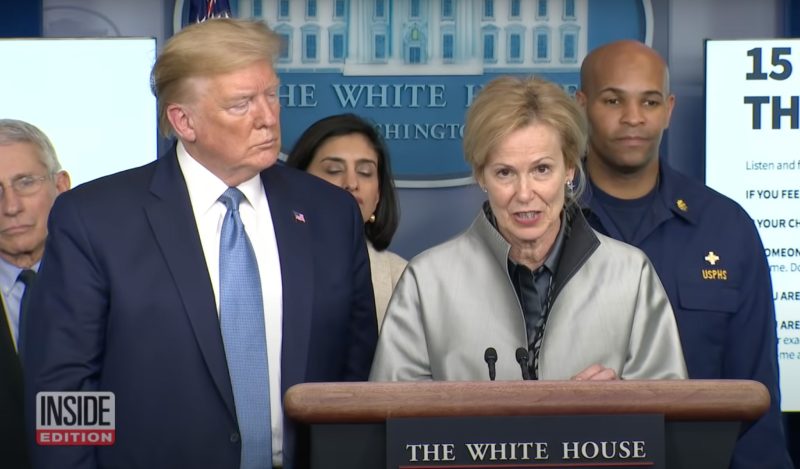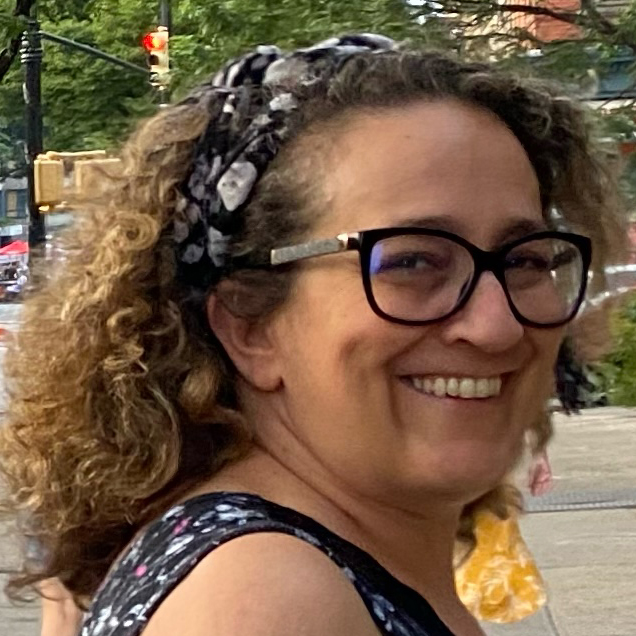Reading Deborah Birx’s badly written, poorly edited The Silent Invasion, published at the end of April 2022, is not easy. In fact, it’s mind-numbingly tedious, especially if you try to read every word and not skim over the myriad digressions, repetitions, and multi-paged meanderings.
Nevertheless, according to The Atlantic, it is “the most revealing pandemic book yet,” detailing how “Trump’s team botched the pandemic.”
I agree that this 521-page “excruciating story” (as The New York Times calls it) is indeed revealing. However, it has little to do with Trump or what The Atlantic might consider pandemic botching.
The most revealing parts of the book are:
1) the claims about Birx herself that, upon close inspection, make little sense, contain strange inconsistencies, or contradict other claims made in the book and elsewhere; and
2) the absurd claims about epidemiology and public health generally, and SARS-CoV-2 specifically, endlessly repeated by Birx as scientific truths when in fact they are anything but.
Investigating these claims is important because they touch on crucial pandemic questions: Who made the terrible pandemic policy decisions and, perhaps most mysteriously and importantly, why?
Here I investigate the obfuscation surrounding Deborah Birx’s appointment as White House Coronavirus Response Coordinator, and then the garbage science she so forcefully pushed once she got there.
How did she get the job?
I have not interviewed Dr. Birx in person, but I have read her book, as well as articles about her and interviews with her. Based on all of these, I put together a Q&A in which the questions are mine, and the answers are verbatim quotes from The Silent Invasion, as well as Dr. Birx’s testimony before the Select Subcommittee on the Coronavirus Crisis in the US House of Representatives on October 12, 2021, and other interviews.
Page numbers from the book and line numbers from the hearing transcript are in parentheses. Links to other articles and interviews are also included.
Q: Dr. Birx, you were officially hired as White House Coronavirus Response Coordinator on February 27, 2020. Who offered you the job?
A: My friend Matt [Pottinger], the deputy national security advisor (p. 32)
In the Congressional hearing on October 12, 2021, you said you did not know why Matt Pottinger was the one to approach you for this job (lines 1505-1507). It does seem odd that Matt would be in charge of appointing a pandemic response coordinator, since public health and epidemiology were not at all part of his experience. As Lawrence Wright reports in The New Yorker in December 2020, “in a very noisy Administration, he had quietly become one of the most influential people shaping American foreign policy.” So why did he hire you again?
I’ve known him through his wife. I really knew his wife. I worked with her at the CDC. (lines 1507-1509)
Matt’s wife, Yen Pottinger, is a friend of yours?
A former colleague at the CDC and a trusted friend and neighbor (p. 32)
So Matt Pottinger was not really a friend, it was his wife you were friends with?
I had known Matt through her eyes for the last three or four years. (lines 1526-1529)
What did you say in your Face the Nation interview on January 24, 2021 about your relationship with Matt and Yen Pottinger?
I’ve known him and I’ve known his wife for a very long time. We’ve worked on pandemics together. Both of us were in Asia during SARS. And so we understood how serious this can go
Follow-up questions:
- Matt and Yen married in 2014. Did you know Matt before that?
[ANSWER NOT FOUND]
- When you say you’ve worked on pandemics together, you do not mean you and Matt Pottinger. You mean you and Yen Pottinger worked on AIDS research at the CDC at some point while you were there, between 2007 and 2014. Correct?
- As far as you and Matt, when you say both of you were in Asia during SARS – you mean back in 2002-2003, you were in Thailand doing research on an AIDS vaccine that never came to fruition, and Matt was a reporter for Reuters and the Wall Street Journal in China?
You were Yen Pottinger’s boss at the CDC when you worked at the Division of Global HIV/AIDS, a position you left in 2014. What can you tell us about your friendship with Yen from the time you left that job until Matt offered you the Covid Task Force position?
In our three years working together at the CDC, I had marveled at her abilities in the lab. (p. 32)
As early as mid-January, Yen and I had been in communication about the outbreak in China. As events unfolded, we shared whatever insights, information, and anxiety we had. (p. 32)
You and Yen were communicating about your anxieties starting in mid-January. You say you were communicating with Matt even earlier than that?
Off and on in early January 2020, I’d share my thoughts with Matt: about the larger picture, about how the virus response in the United States should go, and about how the White House could better manage its messaging around the virus (p. 33)
How did you communicate with Matt?
In my back-channel communications with Matt, I pulled together all the publicly available data I’d been compiling and analyzing, connecting the dots to create a concerning picture, and sent it to Yen to forward to him. (p. 34)
So were you communicating with Yen as a friend or as someone who conveyed your concerns, through her husband, to the White House?
In communicating with Matt, I had ensured they would have everything I was seeing, to use during White House meetings. I let Yen know that the earliest data available showed that the Wuhan outbreak and subsequent spread would be, at a minimum, ten times what SARS had been. (p. 34-35)
Why were you communicating with a deputy national security advisor through his wife?
For privacy and security reasons, I wasn’t ready to use official White House email. I trusted that Matt would share the information with those who needed it and not reveal that I was his source. (p. 34)
When you say “privacy and security reasons,” what do you mean?
Fearing blowback for stepping outside my area of responsibility, I asked him not to use my name when discussing the opinions and data I was providing. (p. 60)
You were sending Matt Pottinger, a deputy national security advisor with high security clearance, data that you say was publicly available, through his wife’s private email, to pass on to the White House without revealing you as his source?
I had access to more unreported, real-time global data (p. 57)
Through her work, Irum [Zaidi, my PEPFAR chief epidemiologist and data person] knew another “data person,” who had access to figures about the novel coronavirus from around the world and very specific data from China. This individual was taking a great risk in passing it along to Irum, and his courage serves as an example for all of us. (p. 59)
So now you’re saying you were getting secret data (not publicly available) from China that was unavailable to Matt Pottinger (although he was the Deputy National Security Advisor for Asia), and passing it along to him through personal communications with his wife, in the hopes of influencing White House policy?
What I wanted to do was define the actions being taken on the emerging virus based on the data. In my years of working with high-level leaders around the world, I had wielded metrics to move minds and formulate policies, standing behind data to justify the changes (p. 34)
I communicated to Matt that we needed to break this chain linking the novel coronavirus to SARS and the seasonal flu and reprioritize testing, full mitigation, mask wearing, improved hygiene, and more social isolation. (p. 38)
So you felt it was your job to give Matt Pottinger very specific public health policy recommendations for the White House long before you were hired for the task force position. But he had offered you a job as early as November 2019, correct?
In November 2019, shortly after settling into his new role, Matt had communicated to me that he wanted me to work at the White House in some capacity as a public health security advisor. (p. 33)
Were you aware that the timing of Matt’s offer coincided with an intelligence report (denied by the Pentagon) from the National Center for Medical Intelligence (NCMI) about a potentially dangerous virus already circulating in China in November 2019?
[ANSWER NOT FOUND]
What is a public health security advisor? Is that related to the National Security Council (NSC) which, in your book, you say hired you through Matt?
The NSC had seen the early reports out of China and Asia before my arrival. Indeed, through Matt Pottinger, it was they who had recruited me to the White House to reinforce their warnings. (p. 169)
The NSC and Matt Pottinger had already seen the early data from China that you said you were passing along to Matt through Yen?
The NSC had seen the early reports out of China and Asia before my arrival. (p. 169)
When you recount how Matt called to offer you the task force job on February 23rd and 24th, you state that he had access to information you did not, correct?
Matt’s urgency represented another degree of concern: the unknown. If he was this concerned, what else was happening? What else would happen? With one of the highest security clearances, Matt had access to all kinds of information that I did not. (p. 61)
So was Matt Pottinger, Deputy National Security Advisor for Asia and a top influencer on foreign policy, with one of the highest security clearances, depending on you for information unavailable to him otherwise, or not?
[SEE ABOVE ANSWERS]
At the Congressional hearing in October 2021, what did you say about your communications with Matt and Yen Pottinger regarding the pandemic?
[They] reached out to me about what I was seeing globally, what I thought this was going to become, and we were communicating primarily around what we were seeing globally on the pandemic. And more about the global response than specifically the White House response. (lines 308-309)
As mentioned earlier, you received a White House job offer from Matt Pottinger back in November 2019. At the Congressional hearing you were asked when your conversations with Yen and Matt shifted into the possibility of you “taking on a role.” (line 318) What was your answer to the Committee?
The end of January, they were looking for someone to talk to the American people about the pandemic and what was being done. (lines 319-321)
In your book you describe that offer, on January 28th, as being arranged through Yen, Matt’s wife. Correct?
On January 28th… I received a text from Yen Pottinger. (p. 32) Yen knew I would be on the White House complex for my meeting with Erin Walsh, and the text she sent me said that Matt had a “proposition” for me. She didn’t know any of the details, but Matt had apologized for the short notice and said he hoped we could meet face-to-face. Yen arranged so that I could meet him in the West Wing, and once we were both there, Matt got to the point quickly. He offered me the position of White House spokesperson on the virus. (p. 33)
Let’s recap: You’re saying the offer of a job as White House spokesperson on the coronavirus came from Matt Pottinger, a high-level national security advisor whose wife, a senior technical advisor for laboratory surveillance at Columbia University, arranged your meeting in the West Wing. Why was Yen involved in this hiring process? How did Yen have the authority or connections to arrange such a meeting?
[ANSWERS NOT FOUND]
After you refused the spokesperson job several times, Matt Pottinger came back with a different offer: White House Coronavirus Response Coordinator. According to Lawrence Wright’s New Yorker article, it was Yen’s idea to offer you the position. The article also makes it sound like this was the first time Matt considered you for a job:
At home, Pottinger fumed to Yen that eight hundred million dollars was half the sum needed just to support vaccine development through Phase III trials.
“Call Debi,” Yen suggested.
Debi was Deborah Birx, the U.S. global AIDS coördinator.
From 2005 to 2014, she led the C.D.C.’s Division of Global H.I.V./AIDS (making her Yen Pottinger’s boss). Birx was known to be effective and data-driven, but also autocratic. Yen described her as “super dedicated,” adding, “She has stamina and she’s demanding, and that pisses people off.” That’s exactly the person Pottinger was looking for.
What are other reasons you’ve given for why you were the right person for the Task Force job?
As early as February 13, the day before I left for South Africa, Yen and I exchanged texts. Matt had told her that there was a lack of leadership and direction in the CDC and the White House Coronavirus Task Force. (p. 54)
[from Yen’s text:] He thinks you should take over Azar, Fauci, and Redfield’s jobs, because you’re such a better leader than they are. He has been underwhelmed thus far. (p. 38)
On February 26, Matt called me expressing greater worry. He told me that every moment I delayed making my decision, I could potentially be costing American lives. (p. 62)
Matt seemed certain I was the missing piece. He knew I had worked on RNA viruses like SARS-CoV-2, from the laboratory bench to the community, developing tests, therapeutics, and vaccines. (p. 65)
More specifically, what epidemics or pandemics have you dealt with?
I’ve also seen the devastation that viruses mete out. HIV, SARS-CoV-1, MERS-CoV, Ebolavirus—I’ve been on the front lines and have worked with many other experts in the field as the world navigated these public health crises. (p. 3)
But in your work you actually dealt with…?
HIV, TB and malaria (p. 26)
What did your family think about the White House job offer?
Yen and I had a bit of a laugh when she asked me what my husband thought of my taking on a new role. I’d told her that, given that I was still in South Africa and he was in the United States, I hadn’t yet told him (not to mention my adult daughters) about the possible White House move. (p. 63)
How long had you been married?
I’d married only a few months before (p. 202)
You did not tell your brand new husband that you were offered a top level position at the White House?
I was that concerned about information being leaked. Who knew who was monitoring our communications? (p. 63)
***
EXECUTIVE SUMMARY: HOW SHE GOT THE JOB
Deborah Birx, an immunologist and Army Colonel who worked for the Department of Defense and US Military on AIDS research, served as Directory of the CDC’s Division of Global HIV/AIDS and as the US Global AIDS Coordinator [ref], was appointed White House Coronavirus Response Coordinator on February 27th, 2020.
She had no training or experience in epidemiology, novel pathogen pandemic response, (unless you consider combatting well-established and known diseases like AIDS, tuberculosis and malaria in developing countries such response), or airborne respiratory viruses like the coronavirus.
She was offered the position by Matt Pottinger, Deputy National Security Advisor for China, who told Birx if she did not take the job American lives could be lost. According to Yen Pottinger (Matt’s wife) Matt thought Birx was a better leader than the heads of NIAID, the CDC and other senior public health officials. The basis for Matt’s very high opinion of Birx’s leadership capabilities and the importance of her appointment to saving American lives is unknown.
Yen Pottinger was a researcher who had worked in Dr. Birx’s CDC lab. Yen and Deborah may or may not have been good friends who kept in touch after Birx left her job at that lab in 2014, the year Matt and Yen married. Birx may or may not have been friends with Matt independently of Yen. Yen may or may not have been the person to suggest Birx for the Task Force Coordinator job.
Before the Coordinator job, way back in November 2019 when nobody was talking about a potential coronavirus pandemic, Matt Pottinger had offered Birx a public health security advisor job. This may or may not have actually been a job offer from The National Security Council, which may or may not have known at the time of a potentially dangerous virus circulating in China.
At the end of January 2020, Matt offered Birx a different job, as White House coronavirus spokesperson. Birx first learned of this through a text from Yen Pottinger, who claimed not to know what Matt wanted to propose, and then proceeded – through unknown security clearances and connections – to coordinate a meeting in the West Wing where the job offer was made. Birx declined.
Starting in mid-January 2020, or maybe earlier, weeks before that spokesperson job offer, Birx communicated with Yen and Matt about the novel coronavirus that she supposedly learned about on January 3rd from the news (The Silent Invasion, p. 3). Birx was mostly communicating with Yen about her fears and anxieties and/or she was communicating with Yen and Matt about her global observations. Or maybe she was giving Matt specific advice through Yen regarding pandemic policies that she wanted him to transmit to the White House.
Birx was basing her public health policy recommendations, which she may or may not have been sending to Matt through Yen in early or mid-January 2020 (when she was officially working on AIDS in Africa) on publicly available data. Or she may have had access to secret data from China.
Matt had access to secret data that Birx did not have and seemed very concerned about the situation, possibly due to that secret data.
Throughout her communications with Matt and Yen Pottinger, Birx was very worried about security and secrecy, which is why she was using personal emails and texts rather than Matt’s official White House email. She did not even tell her grown daughters or her husband about the big White House job offer, because she thought this was such sensitive information and who knew who was monitoring her communications.
It is unknown when Birx’s new husband learned of his wife’s big White House appointment.
Stay tuned for Part II: Why did Deborah Birx push bad science on the White House and the American people?
Published under a Creative Commons Attribution 4.0 International License
For reprints, please set the canonical link back to the original Brownstone Institute Article and Author.









